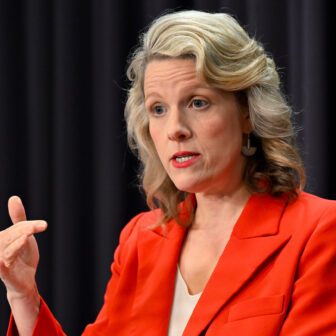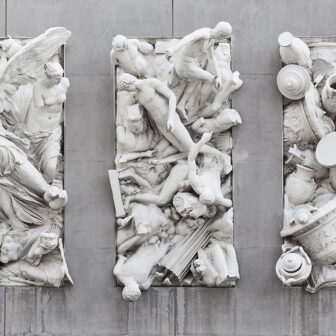In September this year, Murdoch University’s senate agreed to refer alleged misconduct by its vice-chancellor, Richard Higgott, to Western Australia’s Corruption and Crime Commission. No details of the allegations were made public, and nor were the identities of Higgott’s accusers, but it came as no surprise when details of the allegations began to leak. Equally predictable was Higgott’s resignation last month; the situation had clearly passed the threshold for an irreconcilable breakdown in the employer–employee relationship.
To make sense of the case from what is available on the public record and from reliable inside sources is challenging. But based on my forty-plus years of experience in higher education, including nearly twenty on governing bodies, I can only describe the apparent situation as extraordinary.
Where to start? First, if the list of “charges” leaked to the media is accurate, the allegations are mostly risible. Vice-chancellors lead large organisations and are responsible for budgets ranging from many millions to billions. The notion that such people can only escape charges of misusing funds by flying economy class or eating at McDonald’s seems a bit detached from reality, even for the most idealistic critic. As for charges of “arrogance” and “poor communication,” these are necessarily subjective concepts. Many vice-chancellors I have known would strike people as arrogant, at least in some sense, but in education, as in most walks of life, such a perception often seems to go with the territory. Disappointment awaits anyone expecting to encounter a Saint Francis of Assisi in the vice-chancellor’s office.
As for the charge that Higgott and his deputy were “poor listeners,” experience tells me that this is often code for “The boss has failed to accept my views on this matter; he must be a poor listener; it can’t be that I was unpersuasive.” In any event, arrogance and poor listening skills are neither criminal nor corrupt. Nor are indiscreet comments about the quality of certain staff (apparently another allegation), although prudence would suggest that such views are best left unuttered. The normal flow of university life will create sufficient enemies for a vice-chancellor with an excellence agenda: there is no need to go out of one’s way to make more.
Unlike the Health Services Union, universities usually have detailed policies for the use of corporate credit cards, policies which (unless varied in the contract of employment) apply to vice-chancellors as much as anyone else. It is difficult, but not impossible, to envisage a vice-chancellor breaching such policies, and a problem would arise if clerical staff were pressured into processing transactions that violated guidelines. In such an instance, the integrity and professionalism of senior financial and audit staff would be tested. Ultimately, a problem like this might reach the vice-chancellor’s “boss” – the chancellor – but by then things would have reached a sorry pass. One newspaper report referred to “lack of restraint” in credit card use while another labelled it “misuse.” That these are two different beasts highlights the problem with the Corruption and Crime Commission’s cone of silence over the case.
A lack of transparency in appointments is the remaining major charge to have appeared in the media, but the lack of transparency or precision on the part of the accusers makes it difficult to address. Perhaps it refers to the university’s having secured employment for the spouses/partners of senior staff who moved to Murdoch from overseas or interstate. This is a now well-established practice, reflecting the reality that a senior professional career is no longer the sole preserve of one (usually male) partner in a relationship.
On the face of it, then, much of what has been alleged in the media happens at all or most universities, and the anonymous Murdoch critics would essentially seem to be at war with “corporate university life,” as Toby Miller suggested in the Australian last week. If these offences are really the stuff for corruption and crime commissions, then a lot of vice-chancellors should be packing a toothbrush for a spell at Her Majesty’s pleasure. I am not alone in reacting to the alleged offences with “is this all they’ve got?” Surely not, but equally, the cynic in me is thinking that if any seriously criminal offence had been alleged then the details would have been leaked by now.
Interesting as the above speculation may be, the most obvious and undeniable feature of this sorry story is surely the complete breakdown in the relationship between chancellor and vice-chancellor at Murdoch. The normal relationship between these two positions is a cooperative and supportive one, even allowing for the odd mismatch of personalities and the reality that mutual respect can be more easily secured in some pairings than in others. Unless criminal or corrupt conduct is eventually demonstrated, the reference to the Corruption and Crime Commission is bound to be viewed as a premature overreaction, based partly on the breakdown of that relationship. A keen appreciation of Australia’s defamation laws dissuades me from taking this aspect of the discussion any further.
I will conclude with a few thoughts on what experience tells me about some of the desirable characteristics of a chancellor. When I first entered the higher education sector, chancellors were invariably in the senior age bracket, often retired or semi-retired, with enough time to devote to the role (and especially its ceremonial aspects) but not so much time that they would interfere in the management of the institution.
Since then, the average age of chancellors has fallen. It is now common for the chancellor to be in active career mode, possibly at the top of his or her professional life. This has coincided with government-initiated erosion of the democratic features of governing bodies (and of universities themselves). The appointment of senior corporate figures as chancellors is seen as building links with the business community, with a view to developing financially rewarding relationships. The record of such appointees in appreciating the mission and values of the university could be described as uneven.
My own conclusion, perhaps reflecting my age, is that, all other things being equal, the older chancellor is to be preferred to the younger. (In passing, I note that Murdoch’s chancellor, businessman David Flanagan, is a generation younger than his former vice-chancellor.) As with governors-general, there is a case that this should be an appointment later in life when the incumbent ideally has nothing to prove: no CV to expand, no personal agendas, no conflicts of interest and no clash of egos with the vice-chancellor. Along with the important ceremonial role, the chancellor – from a substantial lifetime of experience – should provide the vice-chancellor with support, encouragement and wise counsel. A willingness to caution against hare-brained schemes could also be an advantage. •
Since I wrote the above, it has been revealed that Richard Higgott’s senior deputy, provost Ann Capling, is “under investigation.” Commenting on this development, the Australian Financial Review’s education writer Tim Dodd asks whether recent events are “a highly amateur version of Stalin’s show trials.” The longer the silence from the chancellor, the more certain that such questions will arise.




